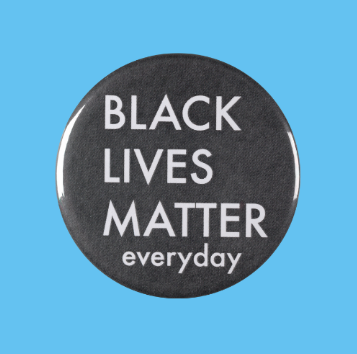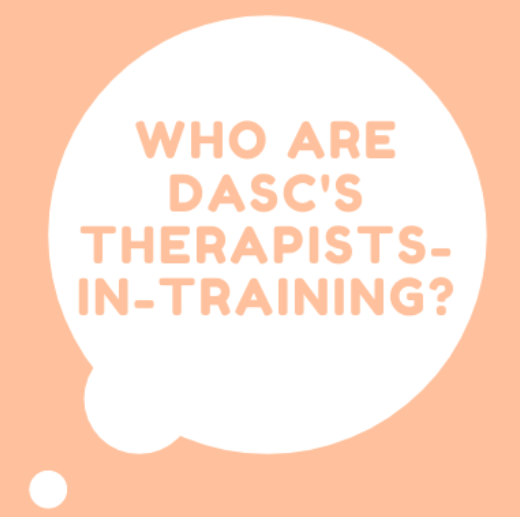
What is Cognitive Behavioral Therapy for Insomnia (CBT-I)?
June 19, 2018Have A Question?
Ask one of our therapists, Caroline “CC” Burke!
 Caroline Burke is a Licensed Clinical Social Worker at the Depression and Anxiety Specialty Clinic of Chicago. Ms. Burke graduated with her Bachelor’s degree in Human Development and Family Studies from The University of Illinois at Urbana Champaign. She then went on to earn her Master’s degree in Social Work from The University of Chicago School of Social Service Administration, with a concentration on clinical practice as well as school social work.
Caroline Burke is a Licensed Clinical Social Worker at the Depression and Anxiety Specialty Clinic of Chicago. Ms. Burke graduated with her Bachelor’s degree in Human Development and Family Studies from The University of Illinois at Urbana Champaign. She then went on to earn her Master’s degree in Social Work from The University of Chicago School of Social Service Administration, with a concentration on clinical practice as well as school social work.
Ms. Burke has worked with children, adolescents and their caregivers, as well as adults presenting a range of mental health issues, including but not limited to: anxiety disorders, mood disorders, autism spectrum disorders, and anger and stress management. Additionally, Ms. Burke has experience working with individuals who have experienced trauma, grief and loss, and legal issues.
Q: People say that there is a definite increase in diagnosed mental health disorders in children and adolescents. Do you believe this to be true? If you believe this, what makes you think so and why is it occurring?
A: I do believe that there is an increase in diagnosed mental health disorders in children and adolescents. I believe that many of today’s childhood and adolescent diagnoses result from an increase in recognition and vigilance among caregivers, educators, clinicians and policy makers, as well as improved education on the importance of early intervention. A study supported by the National Institute of Mental Health found that the onset of half of adult mental health disorders began by age 14 and three quarters began by age 24. They also found noteworthy delays between onset of initial symptoms and actually entering treatment. Consider the impact that a lack of support and intervention can have on a struggling individual. Now consider the impact of that lack of support and intervention on a young person who is in the most fundamental stage of development. It is transformative. I believe that we as a society are starting to become more aware of this transformative mental health concern.
While this data is reassuring to myself as a mental health professional, this increase is not without speculation and continued concern. There has been a great deal of discussion around over-diagnosed and over-medicalized mental health problems, with Attention Deficit Hyperactivity Disorder and Bipolar Disorders having some of the most speculation. Additionally, an increase in mental health diagnoses in children and adolescents does not mean an increase in utilization of and access to treatment. U.S. mental health services are in need of development, as research shows our resources are not keeping up with societal need. This is especially true for less resourced populations.
While research suggests that we have made some improvement in addressing, or at least acknowledging, the mental health crisis, we still have a very long road ahead of us. It is my opinion that society could continue to work on reconceptualizing the function of emotions and how to effectively approach them. I believe that part of what contributes to the mental health stigma, especially among our younger population, is the invalidation of adaptable emotional experiences. In other words, children are internalizing the message that distressing emotions are “bad” or “weak”; and these messages are even more specifically pejorative according to each gender. As a result, we actively push our children towards what Russ Harris coined as “the happiness trap”. The happiness trap poses that the more we try to be happy all of the time, the more we suffer. If our goal is to get to a place of more effective recognition and early intervention of mental health disorders, then this stance is problematic for a few reasons. First, this message can result in over-diagnosis of mental disorders due to pathologizing normal childhood behavior as abnormal and, thus, clinically concerning. Another reason is that this message does not recognize the helpfulness that lies within the flexibility and functionality of our emotions. Sure, I think we can all agree that negative emotions do not feel good. However, there must be a reason that we are still stuck with them after millions of years of evolution. Lastly, this message has the potential to have an immobilizing impact on young people who are experiencing clinically significant mental health disorders. Suggesting that happiness is the goal is inevitably setting anyone up for failure, let along individuals who struggle with mental health conditions.
With all that being said, yes-the increase in mental health diagnoses among children and adolescents is apparent. However, what is more valuable to note is the impact that education, advocacy, and early intervention has on child and adolescent mental health. It is imperative that we continue to work on recognizing the warning signs and proactively addressing the needs of these struggling young people.
_____________________________________________________________________________________________________________________________________________________________
Q: I am in my late 20s and was diagnosed with bipolar disorder a year ago. I am on meds, but my doctor says that I should regularly see a talk therapist. In my culture, we are not supposed to talk about our problems outside the family. What should I do?
A: Hello and thank you for your question, which is an excellent one. Many cultures believe that mental health problems should not be discussed, particular by “airing one’s dirty laundry” outside of the family. A lot of us have questions about what goes on during a therapy session and may have misconceptions about therapy based on what they’ve seen on TV shows and movies. Often times it’s nothing like you may have seen in the media. Throughout our history therapy has at times been seen as something that is punitive or something that people only need when they are really bad off. There has been a lot in advances in the field of psychotherapy and many science-based treatments have been developed. Through the use of evidence-based practices, meaning types of therapy that have been researched and proven to be effective, many people find that that therapy can be just as effective as medication or can work very well as an addition to medication alone. There are certain types of support that family members can provide that professionals can not and also there are ways that therapists can help that are different than family. Therapists are there to support you without bringing their own needs and wants to the situation.
Therapy is also confidential unless there is safety risk, then at times confidentiality may need to be broken to protect people. Otherwise no one but you and the therapist will know what is talked about during your sessions. A good therapist will take the time to get you know and find out about your goals and desires for therapy. They will not impose their agenda or goals on you and you will play a big role in directing how treatment goes. Your therapist will also communicate with your psychiatrist so that they are on the same page and working together to help you. Even if you’re not in crisis and you feel like you’re doing pretty well that can be a good opportunity to work on recognizing signs and symptoms and increasing your ability to cope.
Deciding to see a therapist is a big step that can be overwhelming. It may be helpful to talk with your psychiatrist about referrals or contact a local mental health advocacy group such as Depression and Bipolar Support Alliance or NAMI (National Alliance on Mental Illness).They may be familiar with therapists in your area. Don’t be afraid to do a little research on your own. You can do a internet search about what types of therapies have been proven to be effective for certain disorders. Just be careful to look for reputable sources. Feel free to call around to therapists and ask them about what style of therapy they use. Let the therapist know any questions, concerns or fears that you have and they can help address those in your sessions. You may decide that you want to bring a family member to one of your sessions to help them better understand what you are doing in therapy and how they can help support you.
Talking with your family about your mental illness and the possibility of talk therapy in addition to medication is a brave step which may help open the door to future helpful conversations and increase your family’s understand of mental health issues. Remember asking for help is not a sign of weakness, it’s a sign of strength!




